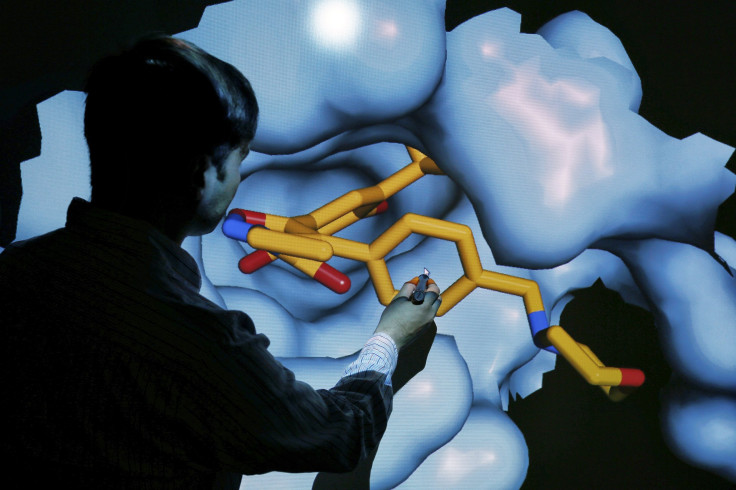Scientists find cancer drug capable to activate, kill undetected HIV virus in the body

A combination of cancer drug and a newly found molecule can clear undetected HIV out of its hiding places in the body before it reactivates after an infected individual stops treatment on anti-virus, research shows. Scientists worked toward a “shock and kill” approach of viral eradication, which reactivates hidden HIV from resting cells and then attacks it with a cancer drug that effectively prevents it from replication, to lessen the threat level for patients.
The study, published in PLoS Pathogens, showed one of the ingredients in a treatment to prevent cancer in sun-damaged skin called PEP005, was "highly potent" at reactivating hidden HIV and also eradicates the remaining sources of virus. The team at the UC Davis School of Medicine that investigated present anti-HIV drugs said these are only capable of targeting actively replicating HIV and are useless against cells containing dormant virus concealed within resting cells.
Researchers said, as soon as an infected individual stops treatment on the anti-virus, the virus comes back even if it’s already undetectable. It was discovered through the case of a Mississippi baby, who despite appearing to be free of HIV for nearly two years after stopping treatment, was found to be still with a HIV reservoir.
With this in mind, researchers described a strategy known as "shock and kill" already being used by researchers around the world, but finding the right compounds to be key to curing HIV has been challenging. The approach works on virus eradication with “shock” pertaining to wake up the dormant HIV and allowing the drugs to “kill” it.
The approach requires scientists to find a substance capable of precisely targeting proteins associated with HIV latency, without inadvertently overstimulating the immune system, an outcome that can generate severe side effects. In the study, the team focused on a molecule called PEP005, which is the only active component of the FDA-approved anticancer drug PICATO. The molecule showed an ability to reactivate latent HIV in blood samples obtained from parts of the immune system from 13 HIV patients, the researchers stated.
The report said PEP005 is highly potent in reactivating a signaling pathway involving a cellular molecule called NF-KB, complex of proteins that bind to HIV’s genome and subsequently drive replication on latent virus, and the chemical represents "a new group of lead compounds for combating HIV."
“We are excited to have identified an outstanding candidate for HIV reactivation and eradication that is already approved and is being used in patients,” lead author Satya Dandekar from the University of California Davis said in a statement. “This molecule has great potential to advance into translational and clinical studies.”
However, one drug is not sufficient to work against HIV due to its high mutation rates, and the scientists searched for other compounds capable of exerting similar effects. They have found another molecule called JQ1, which raise the level of activation up to 15-fold greater when combined with PEP005.
The discovery of PEP005 and JQ1 as potent HIV-activators is a key step in the right direction, however, the drug has still not been tested in people who are HIV-positive. It is important to know if the drug was safe in patients, experts say.
“We’ve made great progress, but at the end of the day you still have more than 30 million people walking around with HIV,” Dandekar said. She added eradicating HIV is extremely critical, and scientists will need to find the right combination of drugs to achieve both “shock” and “kill” without toxic side effects and reduce the threat level for patients.
Contact the writer at feedback@ibtimes.com.au, or let us know what you think below.




















